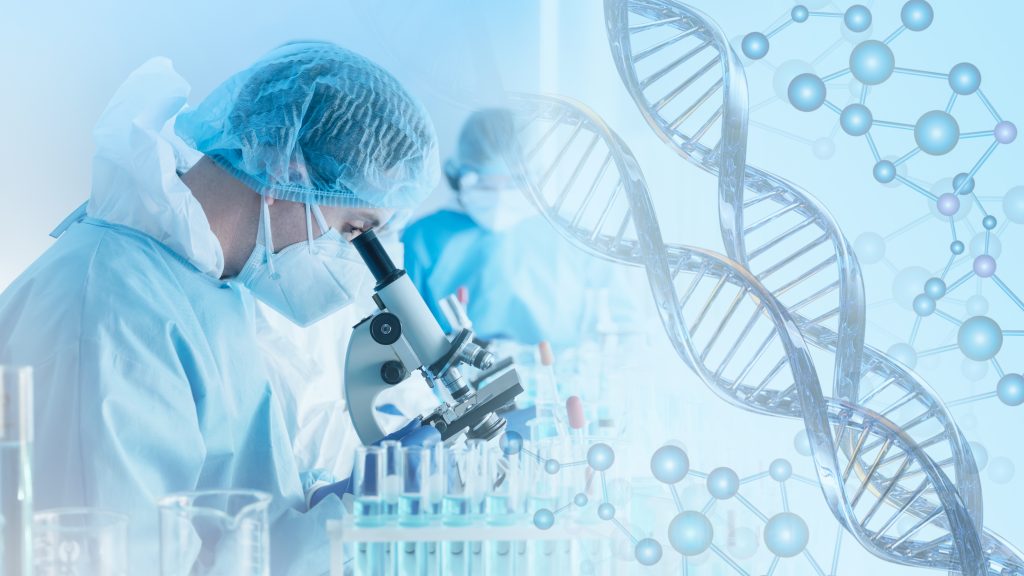For cancer patients, fasting has emerged as a potential complementary therapy that can significantly enhance the effectiveness of conventional cancer treatments and improve patient outcomes. While fasting is not a substitute for medical treatment, it can be used in concert with cancer medications to fight the disease at both the cellular and molecular levels.
Over the years, numerous studies have delved into the impact of fasting on cancer growth, treatment outcomes, and recurrence risk. These studies have shown that fasting can activate immune cells, reduce inflammation, inhibit tumor growth, and improve the efficacy of chemotherapy and radiation therapy.
Furthermore, fasting can help cancer patients manage treatment side effects such as nausea, vomiting, and fatigue. It can also improve overall patient well-being by reducing stress, promoting weight loss, and enhancing mental clarity and focus.
Key Takeaways
- Fasting has emerged as a complementary therapy for cancer patients that can enhance the effectiveness of conventional cancer treatments
- Fasting can activate immune cells, reduce inflammation, inhibit tumor growth, and improve the efficacy of chemotherapy and radiation therapy
- Fasting can help cancer patients manage treatment side effects and improve overall patient well-being
Understanding Fasting as a Complementary Cancer Therapy
Fasting has been used as a complementary therapy for cancer treatment for centuries. This therapeutic approach involves abstaining from food for a certain period of time, with the aim of enhancing the effectiveness of conventional cancer treatments such as chemotherapy and radiation therapy.
When a person fasts, their body enters a state of ketosis, which triggers a series of metabolic changes that can have a favorable impact on cancer cells. For example, fasting has been shown to inhibit the growth of cancer cells, promote cell death, and enhance the effectiveness of chemotherapy and radiation therapy.
Research studies have also suggested that fasting may reduce the risk of cancer recurrence by improving the body’s immune response and promoting cellular repair mechanisms. Additionally, fasting may help reduce the side effects of cancer treatments, such as nausea, vomiting, and fatigue, by promoting the regeneration of healthy cells.
Overall, fasting can be a powerful complementary therapy for cancer treatment, helping to improve treatment outcomes and enhance the patient’s overall quality of life.
“Fasting can influence… cancer cells through a variety of mechanisms, including alterations in glucose and insulin metabolism, oxidative stress, and inflammation.” – Dr. Valter Longo
The Impact of Fasting on Cancer Cells
Fasting has been found to have several benefits for cancer patients, including the potential to inhibit tumor growth and promote cancer cell death. Studies suggest that fasting can also enhance the effectiveness of chemotherapy and radiation therapy, increasing their ability to target cancer cells while minimizing damage to healthy cells.
One of the ways fasting affects cancer cells is by triggering a process called autophagy. Autophagy is a natural mechanism in our bodies that helps to break down and recycle damaged or dysfunctional cells. During fasting, the body enters a state of mild stress, which can stimulate autophagy and promote the elimination of cancer cells.
Additionally, fasting can help reduce inflammation in the body, which is often associated with cancer growth and progression. By reducing inflammation, fasting may help to slow down cancer cell growth and improve treatment outcomes.
One study conducted on breast cancer patients found that fasting for 13 hours or more overnight was associated with a reduced risk of cancer recurrence. Another study on prostate cancer patients found that those who practiced periodic fasting had lower levels of prostate-specific antigen (PSA), a marker of cancer progression.
Overall, there is growing evidence to suggest that fasting can have a significant impact on cancer cells and may be a valuable tool in cancer treatment and prevention.
Fasting to Improve Cancer Treatment Outcomes
Fasting has the potential to enhance the efficacy of cancer treatments and improve overall patient outcomes. Several studies have shown that fasting before and during cancer treatment can reduce side effects and increase treatment effectiveness.
One study published in the journal Cancer Research found that fasting before chemotherapy increased the effectiveness of the treatment while reducing the toxicity of chemotherapy in mice with melanoma. Another study found that fasting during radiation therapy reduced the side effects of the treatment in breast cancer patients.
| Benefits of Fasting in Cancer Treatment | Explanation |
|---|---|
| Enhanced treatment efficacy | Fasting can make cancer cells more vulnerable to treatment, leading to increased treatment effectiveness. |
| Reduced treatment toxicity | Fasting can protect healthy cells from the harmful effects of cancer treatments, reducing side effects. |
| Improved overall well-being | Fasting can help improve patient quality of life by reducing treatment side effects and improving treatment outcomes. |
In addition to the physical benefits, fasting may also improve patient mental and emotional well-being. By actively participating in their treatment and taking control of their health, cancer patients may feel empowered and more resilient throughout their journey.
“Fasting may represent an inexpensive, non-toxic intervention to augment cancer therapy.”
The potential benefits of fasting in cancer treatment are significant. As more research is conducted, it is likely that fasting will become a more widely accepted complementary therapy in cancer treatment protocols.
The Role of Fasting in Cancer Prevention
Recent research suggests that fasting may not only benefit cancer patients undergoing treatment but also help prevent cancer from developing in the first place. In animal studies, caloric restriction and periodic fasting have been shown to reduce the risk of certain types of cancer, such as breast, colon, and prostate cancer.
The theory behind this phenomenon is that periodic fasting triggers a metabolic switch in cells, promoting cellular regeneration and repair mechanisms that can inhibit the growth of cancerous cells. It also reduces insulin-like growth factor 1 (IGF-1) levels, which are known to play a role in the development and growth of cancer cells.
In addition to reducing cancer risk, periodic fasting has been shown to improve overall health and longevity by reducing inflammation, protecting against oxidative stress, and promoting cellular autophagy or self-cleaning processes.
While more research is needed to fully understand the potential benefits of fasting in cancer prevention, these findings are promising and suggest that incorporating periods of fasting into one’s lifestyle may help reduce the risk of developing cancer.
“Periodic fasting triggers a metabolic switch in cells, promoting cellular regeneration and repair mechanisms that can inhibit the growth of cancerous cells.”
The Impact of Fasting on Cancer Cells
Research studies have shown that fasting can have a significant impact on cancer cells. When the body goes into a fasting state, it shifts its energy resources from repairing damaged cells to damaging and eliminating cancer cells in the body.
One study found that fasting may help inhibit the growth of cancer cells and enhance the effectiveness of chemotherapy and radiation therapy. When the body fasts, it enters a state of ketosis, which can make cancer cells more vulnerable to treatment.
Additionally, fasting has been shown to promote apoptosis, or programmed cell death, in cancer cells, while leaving normal cells unharmed. This can potentially help limit the spread of cancer cells throughout the body.
Overall, the impact of fasting on cancer cells is a promising area of research, and more studies are needed to fully understand the potential benefits.

The Holistic Treatments Offered at the Cancer Center for Healing
The Cancer Center for Healing in Irvine, CA takes a holistic approach to cancer treatment, combining conventional medicine with complementary therapies. Their mission is to address the physical, emotional, and spiritual aspects of cancer care, empowering patients to take an active role in their healing journey.
The center offers a variety of holistic treatments, including acupuncture, massage therapy, nutritional counseling, and mind-body therapies such as meditation and yoga. These treatments are designed to support the body’s natural healing processes and enhance the effectiveness of conventional cancer treatments.
| Treatment | Description |
|---|---|
| Acupuncture | Acupuncture is a traditional Chinese medicine technique that involves the insertion of thin needles into specific points on the body. It is believed to help balance the body’s energy flow and promote healing. |
| Massage Therapy | Massage therapy involves the manipulation of soft tissues in the body to promote relaxation, reduce stress and anxiety, and relieve pain and muscle tension. |
| Nutritional Counseling | Nutritional counseling involves working with a registered dietitian or nutritionist to develop a personalized nutrition plan that supports overall health and well-being. |
| Mind-Body Therapies | Mind-body therapies such as meditation and yoga are designed to promote relaxation, reduce stress, and improve overall mental and emotional well-being. |
At the Cancer Center for Healing, patients have access to an integrative team of healthcare professionals, including medical doctors, naturopathic doctors, nurses, and other certified practitioners. Their medical director, Dr. Leigh Erin Connealy MD, is a renowned integrative oncologist with years of experience in treating cancer patients with an integrative approach.
By combining the latest medical advancements with complementary therapies, the Cancer Center for Healing offers a truly holistic cancer treatment program that prioritizes patient-centered care and empowers patients to achieve optimal health and well-being.

The Integrative Approach to Cancer Treatment
At the Cancer Center for Healing in Irvine, CA, patients have access to an integrative approach to cancer treatment that combines conventional medicine with holistic therapies. This comprehensive approach recognizes that cancer treatment is not a one-size-fits-all process, and that patients require individualized care that addresses the physical, emotional, and spiritual aspects of their diagnosis.
By blending the latest medical treatments with complementary therapies like acupuncture, massage, and nutritional counseling, the Cancer Center for Healing provides patients with a holistic cancer treatment program that supports the body’s natural healing capabilities and promotes overall well-being.
The Benefits of an Integrative Approach to Cancer Treatment
Research has shown that an integrative approach to cancer treatment can enhance treatment outcomes, reduce side effects, and improve patients’ quality of life. Patients who participate in holistic cancer treatment programs report higher satisfaction rates and experience less anxiety and depression than those who receive conventional medical treatments alone.
At the Cancer Center for Healing, the medical team works closely with patients to develop personalized treatment plans that encompass both conventional and complementary therapies. By addressing the physical, emotional, and spiritual aspects of cancer care, patients can feel empowered and supported on their healing journey.

Image source: seowriting.ai
Booking a Consultation at the Cancer Center for Healing
If you or a loved one are interested in exploring the holistic cancer treatment options at the Cancer Center for Healing, booking a consultation is simple. Contact their office at 949-680-1880 to schedule an appointment. During the consultation, you will have the opportunity to discuss your medical history, current treatment plan, and explore the integrative approach to cancer care offered by the Cancer Center for Healing.
Dr. Leigh Erin Connealy MD, the medical director of the Cancer Center for Healing, is committed to providing patients with personalized care and support throughout their cancer journey. By combining conventional medical treatments with complementary therapies, such as fasting, the Cancer Center for Healing aims to improve treatment outcomes and enhance overall patient well-being. Book a consultation today to learn more about their holistic cancer treatment program and how it may benefit you or your loved one.
The Power of Holistic Cancer Treatment
Integrating conventional medical treatments with complementary therapies can provide cancer patients with a holistic approach to cancer care. The Cancer Center for Healing in Irvine, CA, is one such facility that offers a comprehensive and customized holistic cancer treatment program.
Their program combines advanced medical treatments with evidence-based complementary therapies, such as fasting, to improve patient outcomes and overall well-being. By addressing the physical, emotional, and spiritual aspects of cancer care, holistic treatment can empower patients to take an active role in their healing journey.

Research studies have shown that incorporating fasting into cancer treatment protocols can potentially enhance the efficacy of conventional treatments while reducing side effects. It can also help reduce the risk of cancer recurrence and improve overall health and well-being.
At the Cancer Center for Healing, patients can benefit from a range of complementary therapies, including acupuncture, IV therapy, hyperbaric oxygen therapy, and more. The center’s medical director, Dr. Leigh Erin Connealy MD, is a renowned expert in integrative cancer treatments and has helped numerous patients on their healing journey.
If you or someone you know is seeking a holistic approach to cancer care, consider booking a consultation at the Cancer Center for Healing. Their team of experts can help design a personalized treatment plan that addresses your unique needs and goals.
Exploring the Benefits of Fasting in Cancer Treatment Protocols
Throughout this article, we have examined the potential benefits of fasting for cancer patients. Fasting has been shown to enhance the effectiveness of cancer treatments, inhibit tumor growth, and improve treatment outcomes.
Research studies have also suggested that fasting may help reduce the risk of cancer recurrence and promote overall health and well-being.
By incorporating fasting into cancer treatment protocols, patients may experience a sense of control over their health and an improved quality of life.
The Cancer Center for Healing in Irvine, CA, offers a holistic cancer treatment program that combines conventional medical treatments with complementary therapies. Their integrative approach includes fasting as a potential therapy for cancer patients.
As more research is conducted on the benefits of fasting for cancer patients, it may become a more widely accepted complementary therapy in cancer treatment protocols.

Image source: seowriting.ai
The Future of Fasting in Cancer Treatment
The potential benefits of fasting in cancer treatment have gained traction in recent years, with many patients and healthcare professionals exploring its potential as a complementary therapy. Ongoing research studies continue to provide insights into the impact of fasting on cancer cells and patient outcomes.
A 2019 study published in Nature found that fasting may enhance the efficacy of chemotherapy in treating breast cancer. The study showed that fasting before and after chemotherapy treatment resulted in fewer side effects and improved overall survival rates in mice with breast cancer.
Another study, published in The Journal of Cancer Research in 2016, found that fasting may inhibit the growth of cancerous tumors and increase the sensitivity of cancer cells to chemotherapy and radiation therapy. The study showed that a three-day fast in mice with breast cancer resulted in smaller tumors and increased cancer cell death.
While research on fasting as a complementary therapy for cancer treatment is still ongoing, early findings suggest that it may hold significant promise in improving patient outcomes and reducing side effects. As more studies emerge, healthcare professionals and cancer patients alike may have access to a powerful tool in the fight against cancer.
Empowering Cancer Patients through Fasting
Fasting can offer cancer patients a sense of control over their health and well-being, which can be especially empowering during an otherwise challenging time in their lives. In addition to physical benefits such as improved immune function and reduced inflammation, fasting can also provide mental clarity and a renewed sense of focus.
As cancer patients navigate the complexities of their treatment protocols, incorporating fasting as a complementary therapy can support their overall healing journey. By providing a way to take an active role in their own health, fasting can empower cancer patients to feel more resilient and capable in the face of adversity.
At Cancer Center for Healing in Irvine, CA, patients have access to an integrative cancer treatment program that combines the best of conventional medicine with complementary therapies such as fasting, nutrition, and mind-body techniques. With a holistic approach to cancer care, patients are able to address the physical, emotional, and spiritual aspects of their healing journey in a supportive and nurturing environment.
The Benefits of Fasting for Cancer Patients: A Summary of Research Findings
Fasting has shown potential as a complementary therapy for cancer patients. Research studies have suggested that periodic fasting or caloric restriction may help enhance the efficacy of cancer treatments, reduce side effects, and improve overall patient well-being.
| Key Benefits of Fasting for Cancer Patients | Research Findings |
|---|---|
| Inhibition of Tumor Growth | Studies have shown that fasting may inhibit the growth of cancer cells and prevent the development of new tumors. |
| Promotion of Cancer Cell Death | Research has suggested that fasting may promote the death of cancer cells and enhance the effectiveness of chemotherapy and radiation therapy. |
| Reduced Risk of Cancer Recurrence | Studies have indicated that fasting may help reduce the likelihood of cancer coming back after treatment and improve long-term survival rates. |
| Improved Treatment Outcomes | Research has suggested that fasting may enhance the efficacy of cancer treatments and reduce the risk of treatment-related side effects. |
| Cancer Prevention | Studies have shown that periodic fasting or caloric restriction may help reduce the risk of developing certain types of cancer and promote overall health and well-being. |
Overall, the research findings support the potential benefits of fasting as a complementary therapy for cancer patients. While more studies are needed to confirm these findings and determine the optimal fasting protocols for cancer treatment, the current research offers promising insights into the role of fasting in cancer care.
Conclusion
In conclusion, fasting has shown great potential as a complementary therapy for cancer patients. The benefits of fasting for cancer patients are many, including inhibiting tumor growth, promoting cancer cell death, enhancing the effectiveness of chemotherapy and radiation therapy, reducing side effects, and improving overall patient well-being. We have explored the effects of fasting on cancer cells and how it can potentially improve cancer treatment outcomes.
At the Cancer Center for Healing in Irvine, CA, patients have access to a comprehensive holistic cancer treatment program, which combines conventional medical treatments with complementary therapies. The integrative approach addresses the physical, emotional, and spiritual aspects of cancer care, empowering patients on their healing journey.
If you are interested in exploring holistic cancer treatment options, we encourage you to book a consultation at the Cancer Center for Healing. Their experienced medical team, led by Dr. Leigh Erin Connealy MD, can provide personalized treatment plans tailored to your unique needs.
Fasting can be a powerful tool in improving cancer treatment outcomes and empowering patients on their journey to healing. As research studies continue to explore the impact of fasting on cancer, we can look forward to more advancements in utilizing fasting as a complementary therapy for cancer patients.
FAQ
Q: What are the potential benefits of fasting for cancer patients?
A: Fasting has been shown to potentially enhance the effectiveness of cancer treatments, improve treatment outcomes, reduce side effects, and promote overall well-being.
Q: How does fasting impact cancer cells?
A: Fasting may inhibit tumor growth, promote cancer cell death, and enhance the effectiveness of chemotherapy and radiation therapy.
Q: Can fasting help prevent cancer?
A: Periodic fasting or caloric restriction may help reduce the risk of developing certain types of cancer and promote overall health and well-being.
Q: Does fasting reduce the risk of cancer recurrence?
A: Fasting may help reduce the likelihood of cancer coming back after treatment and improve long-term survival rates.
Q: What holistic treatments are available at the Cancer Center for Healing?
A: The Cancer Center for Healing offers a range of integrative therapies, combining conventional medicine with complementary approaches to cancer treatment.
Q: What is the integrative approach to cancer treatment?
A: The Cancer Center for Healing takes an integrative approach, combining conventional medical treatments with holistic therapies to address the physical, emotional, and spiritual aspects of cancer care.
Q: How can I book a consultation at the Cancer Center for Healing?
A: To book a consultation at the Cancer Center for Healing, please call 949-680-1880.
Q: Why is holistic cancer treatment powerful?
A: Holistic cancer treatment combines conventional medical treatments with complementary therapies to improve outcomes, enhance well-being, and empower patients on their healing journey.
Q: What are the benefits of fasting in cancer treatment protocols?
A: Incorporating fasting into cancer treatment protocols can potentially enhance treatment outcomes and provide additional benefits for cancer patients.
Q: What does the future hold for fasting in cancer treatment?
A: Ongoing research studies and advancements may further harness the potential of fasting as a complementary therapy for cancer patients.
Q: How does fasting empower cancer patients?
A: Fasting can empower cancer patients through increased resilience, improved quality of life, and a sense of control over their health.
Q: What are the key research findings on fasting and cancer?
A: Research indicates that fasting benefits cancer patients by enhancing treatment effectiveness, impacting cancer cells, and offering potential as a complementary therapy.


















